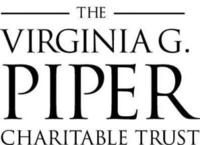This manual was made possible by a grant from The Virginia G. Piper Charitable Trust. The Arizona Early Childhood Education Association is grateful for their generous support.
Authors and Contributors:
- Diane McCormack Nunez M.ED, MCC Education Consulting LLC
- Sharon “Ronnie” Armstrong, Strategic Training Solutions
- Bruce Liggett, ACCA Executive Director
- Barbie Prinster, ACCA Projects Manager
- Cover and Editing: Carol Webb, Bella Media Management



